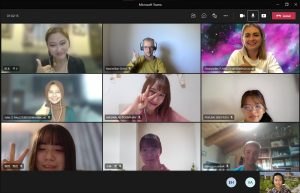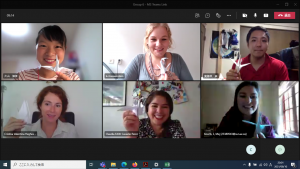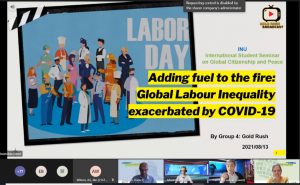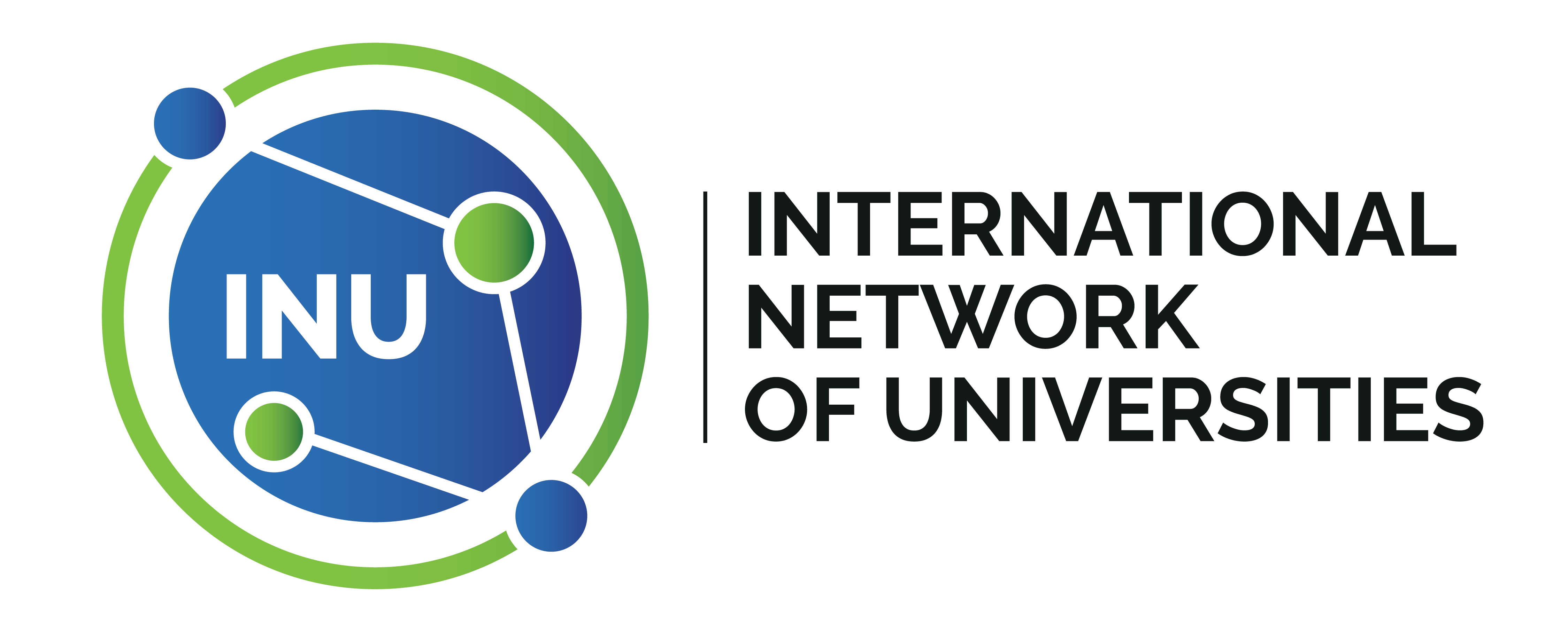 International Student Seminar for Global Citizenship & Peace 2021: ‘Understanding Global Inequalities: Bridging the Gaps’
International Student Seminar for Global Citizenship & Peace 2021: ‘Understanding Global Inequalities: Bridging the Gaps’
“I’ll treasure everything about the experience, and it would be great to do it again!”
In different corners of the world, 76 students from the 10 INU member universities joined the first virtual International Student Seminar. Whilst we missed being together at Hiroshima University (where the seminar is usually held), the spirit of the seminar was retained and enjoyed by all in its online format. The diversity of the students and speakers in terms of culture and disciplines, created eye-opening discussions and learning opportunities.
The depth of intercultural learning and understanding was as strong as ever, with the student participants delving into the topic of global inequalities with passion and eagerness to learn and share their own experiences and viewpoints.
From sessions on story exchange and intercultural learning – to keynote speakers on tackling intersecting inequalities and workshops on the disparities between the global North and global South, health inequalities, labor market inequalities and reducing inequities for sustainable development, the students undertook a variety of sessions as well as group work.
For many participants, the Japanese culture and language sessions were a highlight, with the chance to try out origami, Japanese cookery and some key phrases in Japanese, based on different situations.
“Firstly, I learnt how different we are. I will know how to act in international environments. I learnt a lot about Japanese culture, and I get some insight about South Africa. Academically, I add some knowledge about inequalities in different sectors, and countries” Cristina Valentina Heghes, Universitat Rovira i Virgili (Spain)
Every year, as part of the seminar, we remember the atrocity which took place on 6th August 1945, when an atomic bomb was dropped on the city of
Hiroshima, causing utter devastation and huge loss of life. The students heard from Ms Keiko Ogura, a survivor of the atomic bomb, who shares her testimonial and message of peace with our students, which was deeply profound and moving. Videos were shown from the Hiroshima – Interpreters for Peace website, to bring the students closer to the event, and to understand the huge impact the bomb had on the city and the people who live there. It was a moment for each of us to reflect on our role as global citizens, to promote world peace and mutual respect and understanding.
Overcoming the challenges of multiple time zones and understanding different cultural perspectives, the students bonded during the weeks events and worked out their group dynamics. With the help of WhatsApp chats and the excellent work of the group facilitators, the students were able to work effectively together, producing some incredibly impressive work for their group presentations.
For some students, this was their first international experience, and the impact of this exposure to different cultures and perspectives was described here:
“I learned about the importance of communication. I’ve never experienced to talk and cooperate with foreign students before INU seminar. Through this seminar, especially group work, I want to be their friends. I think this is the power to make a global peace.”
The student participants were extremely impressive, and fully embraced the online version of the seminar, engaging with speakers and working extraordinarily hard to produce some fantastic final presentations:
Group 1 – Olympic Torchmakers – “Intersectoral work in mental health education”
Group 2 – Diving in the Deep – “Mental Health: The forgotten Inequality”
Group 3 – Torchbearers – ‘How can postcolonial countries overcome health and education inequalities? An Intersectional approach with examples’
Group 4 – Gold Rush – “Adding fuel to the fire: Global labour inequality exacerbated by COVID-19”
Group 5 – Tanuki – “The Challenges of the Modern World: How Education and Health Inequalities Affect the Countries from Global North and South”.
Group 6 – Gymnastics Fantastics – “Bridging the gaps: A comparative analysis of health inequalities in Germany and South Africa.”
The winning group was Group 4, who delivered an incredible presentation, surprising us by performing as news readers reporting on the issue of “Adding f uel to the fire: Global Labour Inequality, exacerbated by COVID-19″ complete with dramatic music, in-country interviews and news studio backdrops. Congratulations Group 4 – and to all the other International Student Seminar participants! The winning team chose the charity UNICEF for the £100 prize charity donation.
uel to the fire: Global Labour Inequality, exacerbated by COVID-19″ complete with dramatic music, in-country interviews and news studio backdrops. Congratulations Group 4 – and to all the other International Student Seminar participants! The winning team chose the charity UNICEF for the £100 prize charity donation.
The presentations were watched by faculty and international office staff from across the INU members, who were invited to vote for the winning group. When asked for feedback on the student presentations overall, the comments reflect the outstanding work the students had put into their presentations:
“Some stunningly great insights from our groups as international coalitions. I genuinely learned a great deal from them, and was thrilled by their cutting analysis, the personal experiences that led to diversity-driven ideas about bridging gaps, and fantastic coordination for making appeals to the experience of other global citizens as an audience. It really lit a fire under me as an educator about what can be achieved with such an excellently executed program, theme, format, and organization. The student products were very insightful, creative, and clear in their thinking and organization of ideas.” Russell Kabir, Assistant Professor, Graduate School of Humanities and Social Sciences, Hiroshima University
The International Student Seminar was a great example of international collaboration, not only from a student perspective but also in terms of the speakers and facilitators who were sharing their expertise from across the INU network – from Indonesia, Argentina, USA, UK, Germany, Spain, South Africa and Japan.
We’re looking forward to returning to Hiroshima University for the International Student Seminar in 2022, all being well, and we hope to continue an online element to enable students unable to travel to be a part of the experience also.
With special thanks and recognition to the Organising Committee
Yasushi Maruyama, Kaori Taka, Konomi Ogawa and all our colleagues and friends at Hiroshima University
Radu Cinpoes, Academic Chair of the International Student Seminar, Kingston University
